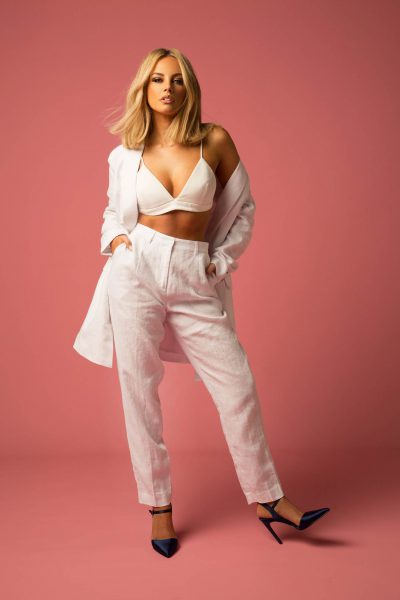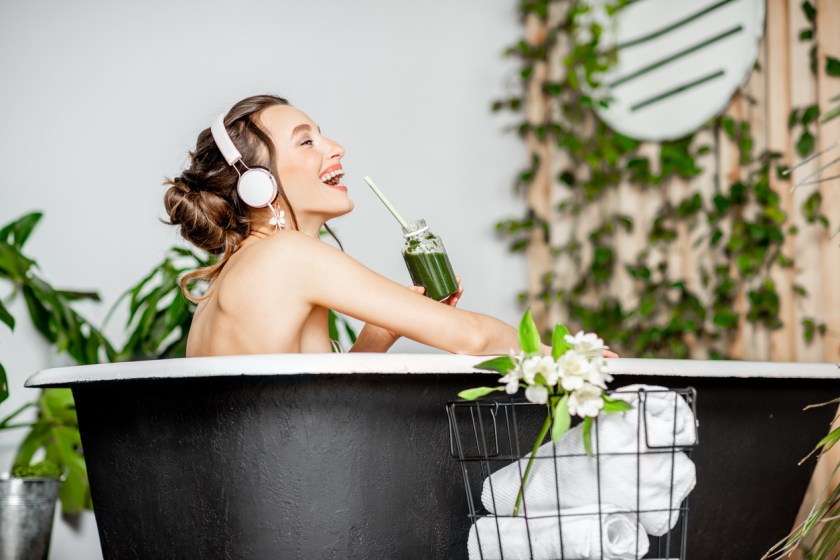What music you play in your spa or salon can influence the way your clients feel, but whatever genre it is, make sure you have the licence to listen. APRA gave us the lowdown on what you need to know.
The relationship between music and the salon is intertwined, with music offering experience, vibe and ambiance to your space that is as important as design or service. Moreover, both beauty services and music act as a creative outlet that allows our artistry to be both revealed and rewarded. Here, pop star Samantha Jade explains that very personal connection from her distinct and unique point of view. As a singing mega-star, both music and style and aesthetic are paramount to Samantha Jade, who has spent many hours in her favourite salons, and knows the value of music in and out of those environments. Her strong belief in the value and power of creativity – something beauty professionals know too well – is driving her to campaign for widespread music licence compliance in the hair and beauty sector. Not only is this important legally, but it’s critical for artists, who, like Samantha, could be your next client.

“I am super inspired by fashion and it actually plays a big part in the creative and song writing process for me,” Samantha said of this synergistic relationship. “Whenever I’m writing a song, I automatically see the video, including the fashion, hair and beauty surrounding the aesthetic. Fashion is a form of expression of self and creativity. Makeup is something I love to experiment with. I feel like the process of painting your face for performance allows the performer in me to come alive.” Samantha’s local salon haunts include Edwards and Co in Surry Hills, where Jayde Turner-Ledwidge is her long-term, personal stylist, while she turns to Brooke Low and Monica Gingold as makeup artists in Sydney and Melbourne respectively.
In beauty especially, Samantha loves to experiment with products, and this creative outlet mirrors her musical outlets as well. The fact that beauty business owners can understand the importance of owning and profiting off one’s creativity, talent, artistry and output, makes the OneMusic licence all the more vital for salons. Like all retail locations, salons need a licence or other permission to play music in salon.
“Like all retail locations, salons need a licence or other permission to play music in salon.”
The licence fees paid go back to the music creators like Samantha Jade as royalty income. Doing something as simple as paying a OneMusic licence and then curating a great playlist to suit your salon brand is a huge bonus to both the musicians and the salon, validating a piece of your salon ambiance that helps define your atmosphere and brand. When you start thinking about that all-important playlist, keep Samantha in mind – her single ‘Bounce’ may have clients keen to leave the salon with a little more volume or a bold brow, and you’ll be dancing to each chair with a spring in your step. With OneMusic, make sure you’re honouring the artists for that day-making dance break.
Do I need a licence if I am paying for a streaming service?
It depends which service you subscribe to. Mostly, yes. Launched in November last year, if you subscribe to Apple Music for Business you are covered for playing music in your commercial space because PlayNetwork (who supply Apple Music for Business in Australia) have a OneMusic licence for the commercial clients they supply music to. Plus you won’t be breaking Apple’s Terms and Conditions as the product has been set up precisely for that commercial music use. For other streaming services, you need to pay for a licence from OneMusic on top of your subscription because your commercial/ business use is not covered by your streaming/digital music service supplier. You will see that almost all digital music services operating in Australia and New Zealand strictly state their service is for personal and domestic use only. Have a look at the terms and conditions of your personal digital music service end-user agreement.





